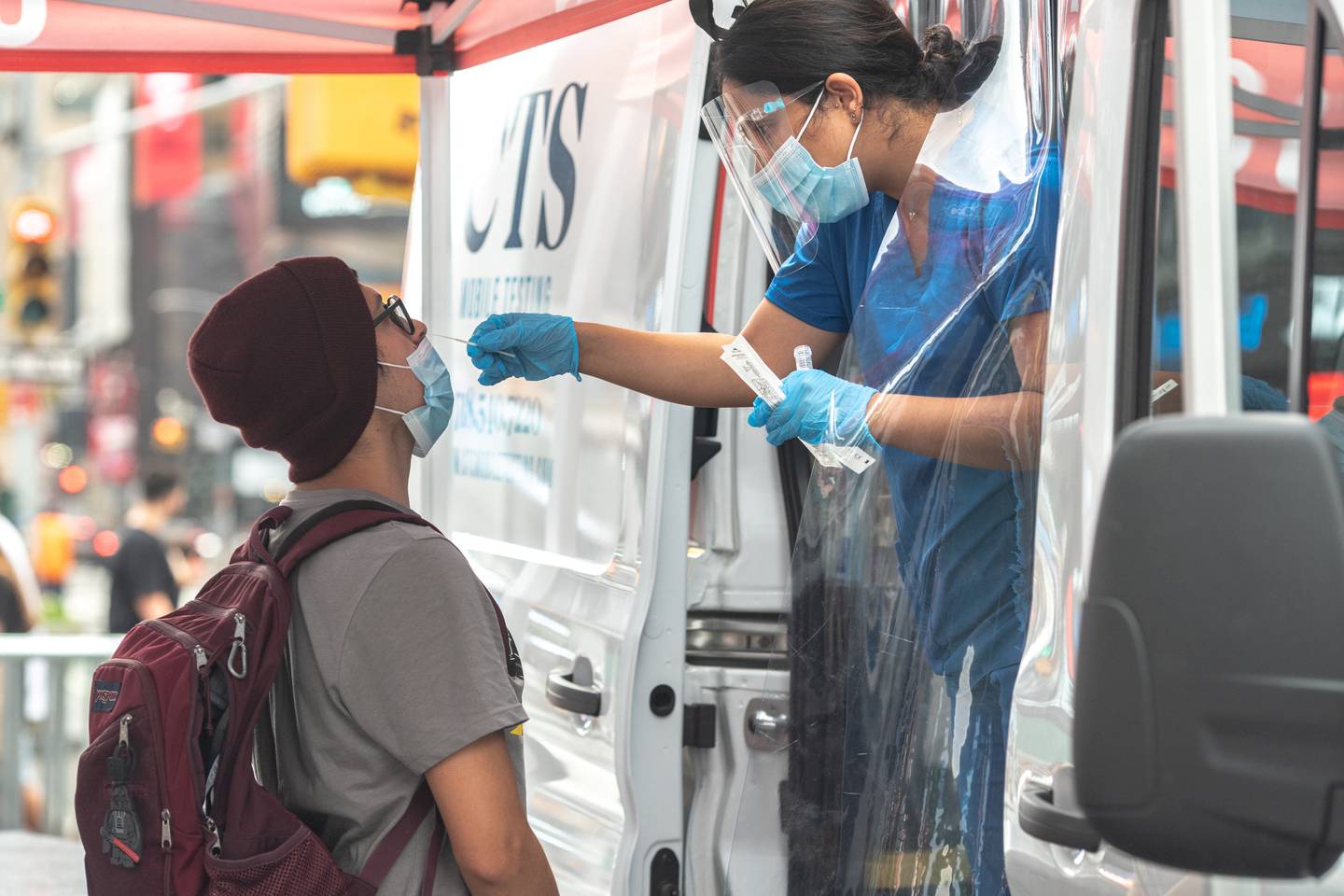Covid-19 has killed more people in the US than HIV/Aids did in 40 years

Covid-19 has now killed about 730,000 people in the US, making it the deadliest pandemic in the nation's history, with more lives claimed than by HIV/Aids.
The tally comes as the US marks four decades since HIV — the virus that can cause Aids — was first detected in the country, and some are now looking at the two vastly different diseases and seeing parallels.
The US government's initial approach to both HIV/Aids and Covid was denial and indifference.
As Aids rampaged through communities in New York, San Francisco and elsewhere in the early 1980s, the administration of former president Ronald Reagan looked the other way.
Even as the disease claimed tens of thousands of American lives, Reagan slashed spending on public health agencies, and it wasn't until 1987 that he recognised the pandemic.
“I wish in the HIV response, they tried to bring all Americans along, and it wasn't just a problem that was in certain communities,” Kevin Fisher, director of policy, data and analysis for the Aids Vaccine Advocacy Coalition, told The National.
“If they brought everybody along and said this is something that we all need to figure out, then it would have been better.”
When Covid-19 first arrived in the US, then-president Donald Trump repeatedly played down its dangers, dismissing it as akin to “a regular flu” — even after he knew it was far deadlier.
Both crises have disproportionately affected minority groups and poorer communities. For Covid, people of colour have often had to keep working in front-line jobs while white and wealthier people stayed home.
For HIV/Aids, homosexuals and drug-using populations were hit hardest by the disease in the early days as it was transmitted primarily through unprotected sex and intravenous drug use.
“They're both diseases that kind of prey on human intimacy”, despite differences in how they're spread, Mr Fisher said.
More than 34,000 HIV infections were registered in the US in 2019, Kaiser Family Foundation data show.
HIV-related illness ranked tenth in leading causes of deaths for people between the ages of 25 and 34, and killed a total of 486 people in this age group in 2019, the US Centres for Disease Control and Prevention said.
Exact numbers are unknown, but it is believed that at least 700,000 people in the US have died as a result of HIV/Aids.
Covid cases are dropping nationwide but the US continues to report an average of 75,000 infections and 1,250 deaths daily, the CDC said.
The US leads the world in deaths from Covid.
“That's just heartbreaking that in a year and a half of this pandemic, we've seen so many, so many lives lost and especially since having the vaccine available,” Stephen Lee, executive director of the National Alliance of State & Territorial Aids Directors, told The National.
At the same time, Mr Lee said the US government has learnt some important lessons from HIV/Aids.
In 40 years of fighting the virus, health programmes and healthcare infrastructure have expanded, helping the US better address the current pandemic.
Despite his Covid denial, Mr Trump was quick to emphasise the need for a vaccine under the Operation Warp Speed public-private partnership that has helped create and roll out several Covid vaccines and treatments on an accelerated time frame.
“Some of the rapidity of which we see and saw the development of vaccine and treatment and prevention aspects around Covid was built on some of the experience we had with HIV,” Mr Lee said.
Mr Fisher noted how the early official response to HIV/Aids stigmatised sufferers.
With Covid, anti-Asian hate crimes spiked as Mr Trump and others blamed China for the virus.
While there is currently no cure for HIV or Aids, two people have been functionally “cured”: the PrEP pill significantly lowers the risk of HIV infection for at-risk communities and several antiretroviral pills treat HIV, making it a chronic, manageable condition.
Mr Lee and Mr Fisher said another lesson learnt from HIV/Aids was prioritising community engagement.
For instance, volunteer mutual-aid groups were created in local neighbourhoods and the administration of President Joe Biden formed a White House Covid-19 Equity Task Force as part of its national pandemic response.
Many US health leaders, including Mr Biden's top medical adviser, Dr Anthony Fauci, and CDC chief Dr Rochelle Walensky, started their careers in HIV prevention and are now leading the US fight against Covid.
Mr Fisher and Mr Lee believe increased investment in public health infrastructure and future pandemic preparedness will help the world address both HIV and Covid.
“There are benefits that we can mine from the Covid response so far,” Mr Lee said.
“All the money and resources that are going into improving our public health infrastructure will have spillover effects and other aspects of communicable diseases like HIV.”
Much work remains to be done, however, including funding US plans to end the HIV/Aids health crisis by 2030, which Mr Biden said he supports.
“Remember that HIV is still there, it's still a major epidemic that we haven't got under control, and we need global commitment to try and finish the work on that,” Mr Fisher said.
Source: www.thenationalnews.com
